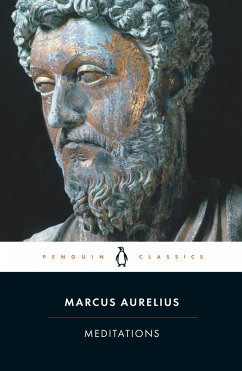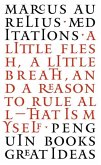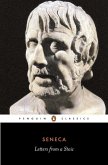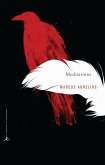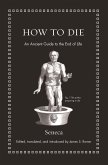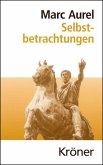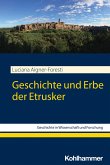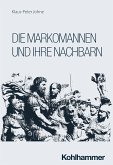'Their icy blasts are refreshing and restorative. They tell you the worst. And having heard the worst, you feel less bad' Blake Morrison
Written in Greek by the only Roman emperor who was also a philosopher, without any intention of publication, the Meditations of Marcus Aurelius offer a remarkable series of challenging spiritual reflections and exercises developed as the emperor struggled to understand himself and make sense of the universe. While the Meditations were composed to provide personal consolation and encouragement, Marcus Aurelius also created one of the greatest of all works of philosophy: a timeless collection that has been consulted and admired by statesmen, thinkers and readers throughout the centuries.
Translated with notes by MARTIN HAMMOND with an Introduction by DISKIN CLAY
Hinweis: Dieser Artikel kann nur an eine deutsche Lieferadresse ausgeliefert werden.
Written in Greek by the only Roman emperor who was also a philosopher, without any intention of publication, the Meditations of Marcus Aurelius offer a remarkable series of challenging spiritual reflections and exercises developed as the emperor struggled to understand himself and make sense of the universe. While the Meditations were composed to provide personal consolation and encouragement, Marcus Aurelius also created one of the greatest of all works of philosophy: a timeless collection that has been consulted and admired by statesmen, thinkers and readers throughout the centuries.
Translated with notes by MARTIN HAMMOND with an Introduction by DISKIN CLAY
Hinweis: Dieser Artikel kann nur an eine deutsche Lieferadresse ausgeliefert werden.
Martin Hammond's translation of Marcus Aurelius' Meditations, like his Iliad and Odyssey, is the work of an unusually gifted translator, and one who understands the value added by careful attention to supplementary material. He writes natural English, direct and often eloquent; the text is well supported by effective notes and a characteristically thorough and well-planned index; Diskin Clay supplies a useful introduction. This is a fine volume Malcolm Heath Greece & Rome Journal

